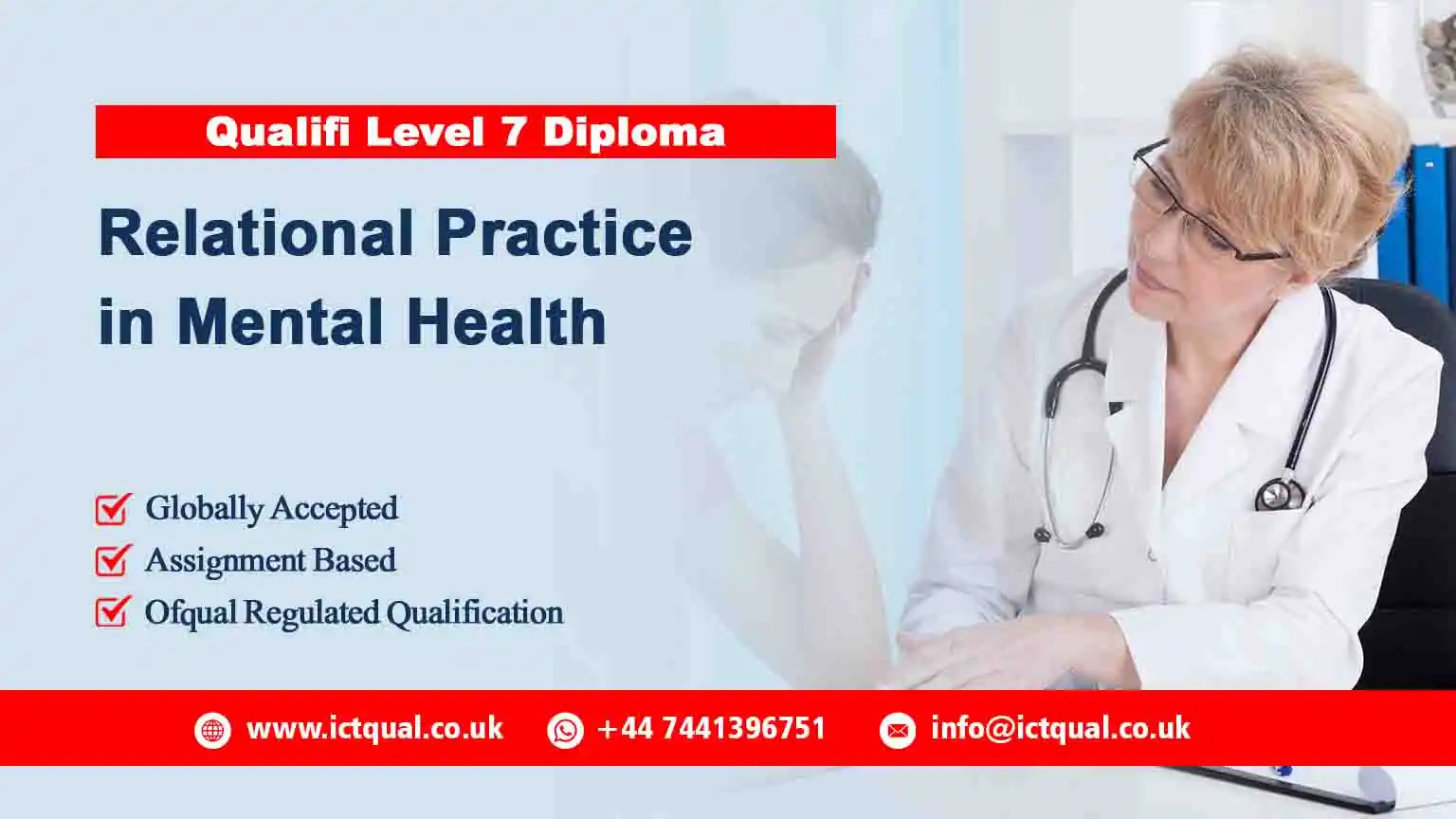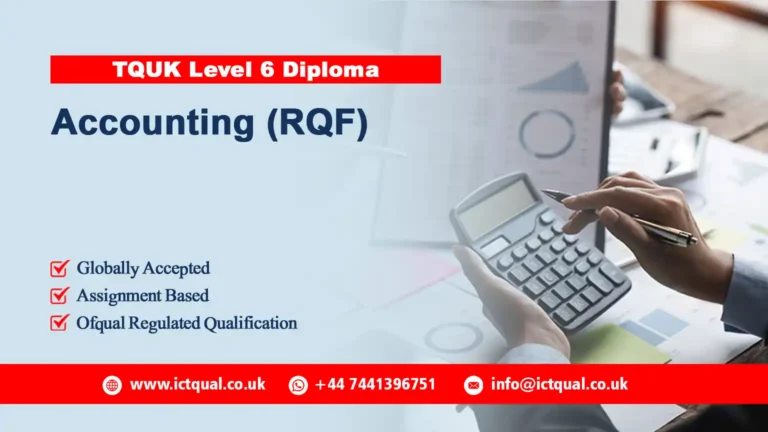In today’s rapidly evolving field of mental health, the need for advanced and specialized training is more critical than ever. One such qualification that stands out is the Qualifi Level 7 Diploma in Relational Practice in Mental Health. This diploma is designed for professionals who aspire to deepen their understanding and practice in relational approaches within mental health settings. Let’s delve into what makes this qualification unique and how it can enhance your career in mental health.
The Qualifi Level 7 Diploma in Relational Practice in Mental Health is an advanced-level qualification that provides practitioners with the skills and knowledge needed to effectively engage in relational practices within mental health contexts. This diploma focuses on the relational aspects of mental health practice, which are crucial for building effective therapeutic relationships and fostering better outcomes for clients.
Holding a Level 7 diploma demonstrates a high level of expertise and commitment to the field, which can be a significant advantage in career progression and opportunities for leadership roles. It is particularly suited for those who are looking to specialize in relational practice and wish to deepen their expertise in this area.
The Qualifi Level 7 Diploma in Relational Practice in Mental Health offers an invaluable opportunity for mental health professionals to advance their skills and make a significant impact in their field. By focusing on relational practice, this qualification not only enhances individual professional capabilities but also contributes to the overall improvement of mental health services. For those committed to making a difference in the mental health sector, this diploma is a step towards achieving excellence in relational practice.
The Qualifi Level 7 Diploma in Relational Practice in Mental Health is an advanced qualification designed to provide in-depth knowledge and expertise in the practice of relational approaches within mental health settings. This diploma is tailored for mental health professionals, counselors, and therapists who seek to deepen their understanding of relational dynamics and enhance their skills in applying relational practices to support mental health and well-being. The program offers a comprehensive exploration of how relational approaches can be utilized to improve therapeutic outcomes and foster effective, compassionate care.
The diploma’s curriculum is built around the core principles of relational practice, emphasizing the importance of the therapeutic relationship in mental health interventions. Participants examine various relational models and frameworks, learning how to build and sustain meaningful therapeutic relationships with clients. This focus on relational dynamics is crucial for creating a supportive and empathetic environment that facilitates healing and growth.
Central to the program is the exploration of advanced therapeutic techniques and interventions rooted in relational practice. Participants learn to apply these techniques to address a range of mental health issues, including anxiety, depression, trauma, and personality disorders. The diploma provides practical training in how to use relational approaches to assess, plan, and deliver effective interventions that are tailored to the individual needs of clients.
The course also delves into the theoretical underpinnings of relational practice, exploring key concepts such as attachment theory, relational-cultural theory, and systems theory. By understanding these theoretical frameworks, participants gain insights into how relational dynamics influence mental health and therapeutic outcomes. This theoretical knowledge supports the application of relational practices in a structured and evidence-based manner.
Ethical considerations and professional standards in relational practice are a critical component of the diploma. Participants examine ethical dilemmas, confidentiality issues, and professional boundaries specific to relational practice in mental health settings. The program emphasizes the importance of maintaining ethical standards and providing client-centered care that respects the dignity and autonomy of individuals.
A significant aspect of the diploma is its focus on self-reflection and personal development. Participants engage in reflective practice to enhance their self-awareness and improve their effectiveness as practitioners. The program encourages individuals to explore their own relational styles and how these impact their therapeutic work, fostering a deeper understanding of themselves and their professional practice.
The diploma also includes practical elements, such as case studies, role-playing exercises, and supervised practice. These practical components allow participants to apply theoretical knowledge to real-world scenarios, develop their relational skills, and receive constructive feedback from experienced practitioners. This hands-on approach ensures that learners are well-prepared to implement relational practices effectively in their professional roles.
The Qualifi Level 7 Diploma in Relational Practice in Mental Health offers a comprehensive and advanced education in relational approaches to mental health care. With its focus on therapeutic relationships, advanced interventions, theoretical frameworks, ethical considerations, and personal development, the diploma equips professionals with the skills and knowledge needed to excel in relational practice and enhance the quality of mental health care. This qualification is a valuable asset for those committed to advancing their careers and making a meaningful impact in the field of mental health.






